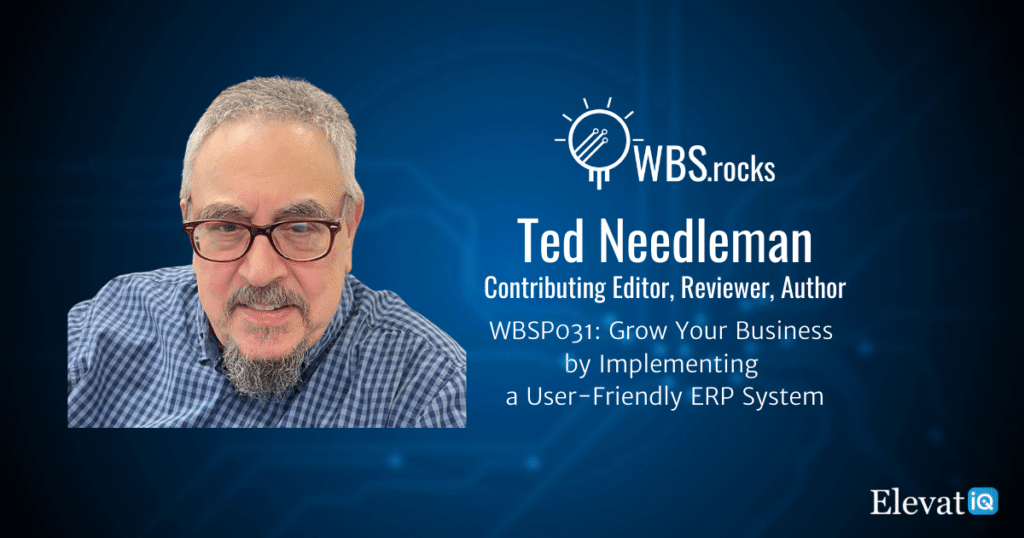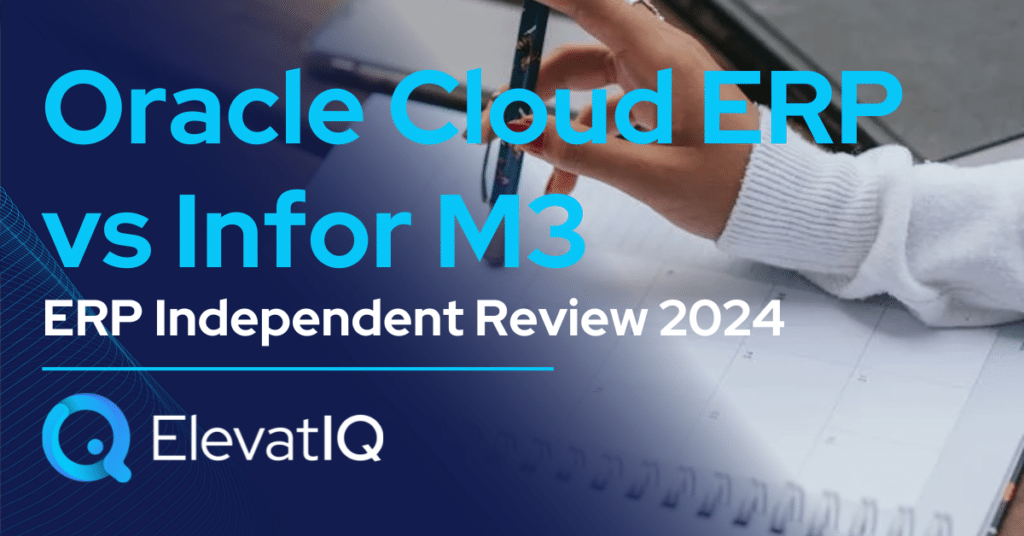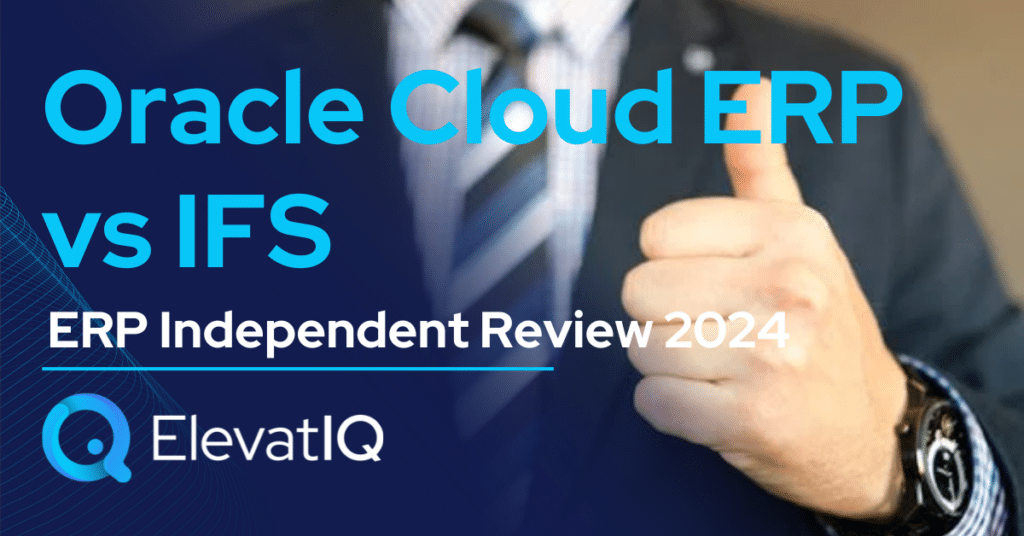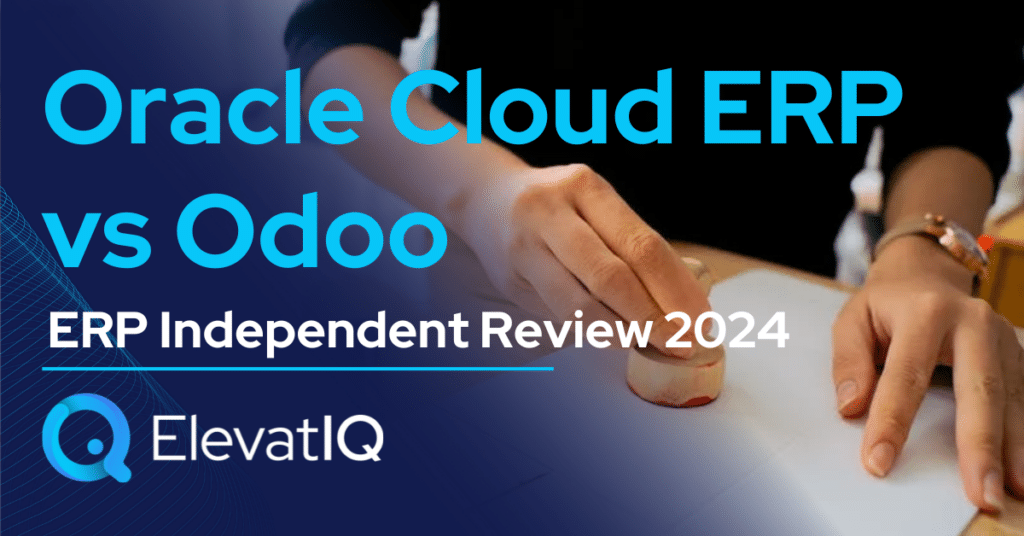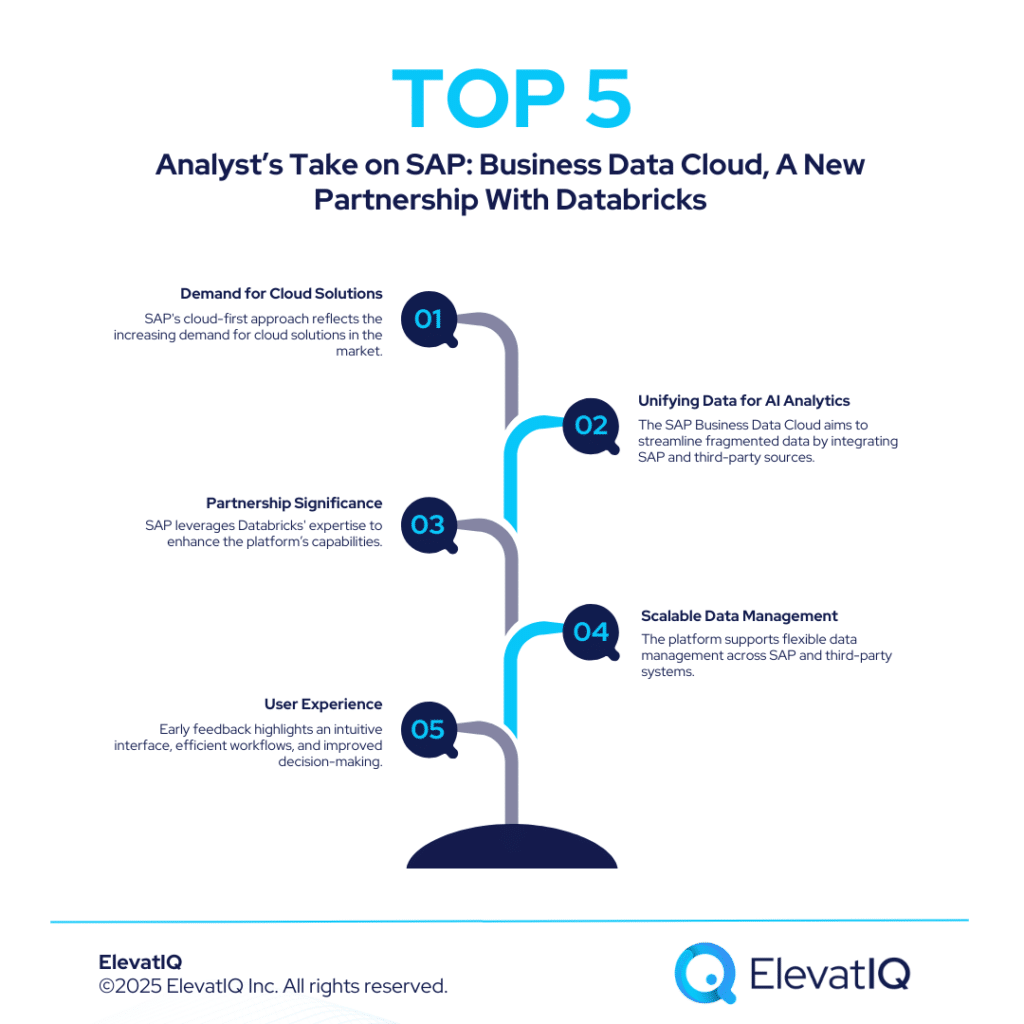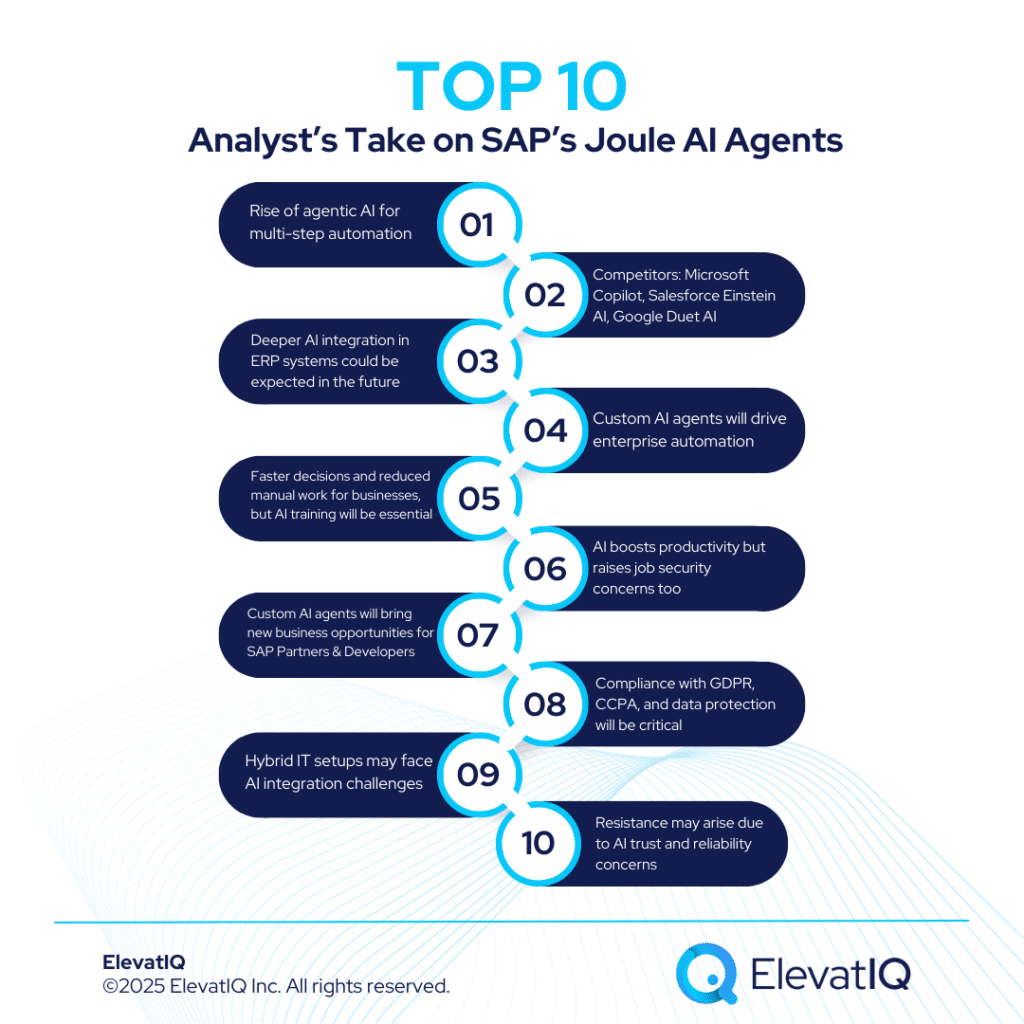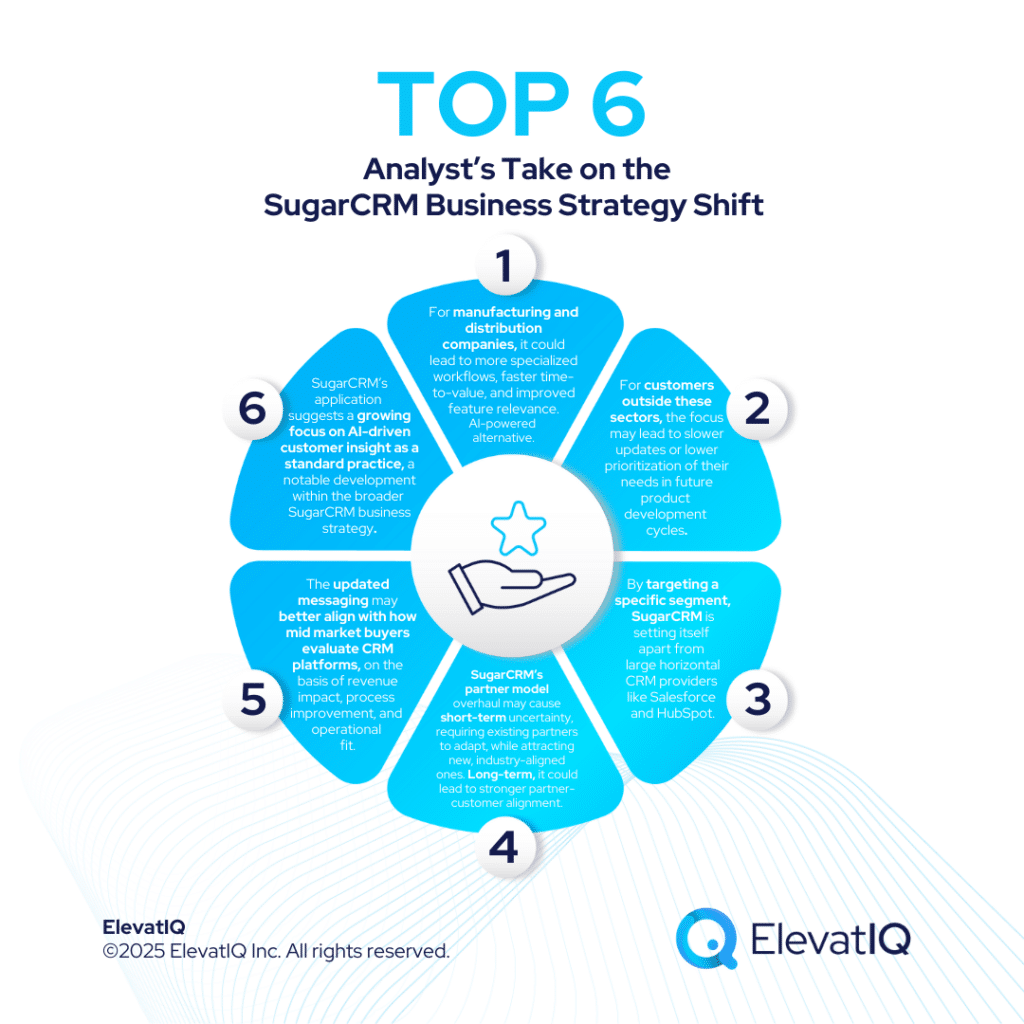Last Updated on November 27, 2023 by Sam Gupta
In this episode, we have our guest Ted Needleman, who discusses the role of ERP consultants why they are pivotal for an ERP implementation, and why they play a huge role in user experience and training. He also helps us understand why modern systems are more user-friendly than legacy ones. Finally, he touches on the attributes you should be paying attention to while selecting a usable system.
Chapter Markers
- [0:19] Intro
- [2:47] Personal journey and current focus
- [4:39] Perspective on growth
- [8:10] The value of consultants for ERP projects
- [12:26] The importance of usability in an ERP system
- [14:24] The technological advancements in new ERP systems
- [20:34] The limitations of QuickBooks
- [23:29] The importance of recognized ERP vendors
- [25:48] What is an ERP?
- [32:59] Closing thoughts
- [35:01] Outro
Key Takeaways
- Those legacy ERP systems were designed to accomplish tasks and not to be usable. And the software that’s been written for the cloud is built on the knowledge of human factors.
- Legacy systems were designed where you have these big operations manuals to tell you every 15 pages to figure out how to input data into the fields. the new ERP systems are basically flowcharting your way through the system.
- Usability isn’t absolute. Usability is very much reflected in the level of the person, in the end, the entity that’s using the system. And as you get more and more sophisticated going through the system, it becomes more useful because if you’re printing out financial statements, you have to understand what they are.
- ERP is a chameleon. It is an accounting system. It is a manufacturing system. And It is a retail system. So it has to be what the business needs and every business is a little bit different. And an ERP system has to be flexible enough. It has to be configurable to a business without ruining other aspects of the application. It has to be scalable.
- If every ERP system did exactly the same thing, exactly the same way that we want to ERP system, it would only be one vendor. And it’s a difference rather than the similarities that you have to be aware of, and you have to understand how they fit in with your way of doing business.
- There are a lot of people, unfortunately, that have been put in that situation because ERP is working its way down from large enterprises down into businesses that would normally be considered small to midsize businesses. And that’s a new market over the last five or ten years for ERP vendors.

Subscribe and Review
Apple | Spotify | Stitcher | Google Podcasts | Deezer | Player FM | Castbox
About Ted
Ted Needleman has been a programmer, an accountant in public practice, the Editor in Chief of Accounting Technology magazine, and the Director of an imaging and printing test lab. He has been reviewing hardware and software for over 40 years and has published more than 4,000 reviews, articles, and columns totaling over 4 million words, as well as two books. He’s been a Contributing Editor for Accounting Today for the past 23 years, writed the Ted on Tech blog there, and is a frequent reviewer for PCMag, Digital Trends, and other sites.
Resources
Full Transcript
Ted Needleman 0:00
Legacy systems were designed a long time ago. And it’s like having a 1940 pickup truck that you keep replacing the tires and the oil, and you patch the rough spots. I’m not saying any one particular vendor is in that situation, but you’re working with yesterday’s technology.
Intro 0:19
Growing a business requires a holistic approach that extends beyond sales and marketing. This approach needs alignment among people, processes, and technologies. So if you’re a business owner, operations, or finance leader looking to learn growth strategies from your peers and competitors, you’re tuned into the right podcast. Welcome to the WBS podcast, where scalable growth using business systems is our number one priority. Now, here is your host, Sam Gupta.
Sam Gupta 0:55
Hey everyone, welcome back to another episode of The WBS podcast. I’m Sam Gupta, your host and principal consultant at digital transformation consulting firm ElevatIQ.
ERP systems are perceived to be complex. But why are they so hard to implement and learn? How do usable systems differ from the other complex systems? Does technology play a role in user experience? Why are ERP consultants so expensive? And why are they so critical for an effective ERP implementation? These are some of the questions you will have if you are reviewing a new ERP system today.
In today’s episode, we have our guest, Ted Needleman, who discusses the role of ERP consultants, why they are pivotal for any implementation, and why they play a huge role in user experience and training. He also helps us understand why modern systems are more user-friendly than legacy ones. Finally, he touches on the attributes you should be paying attention to while selecting a usable system. Let me introduce Ted to you.
Sam Gupta 1:55
Ted Needleman has been a programmer, an accountant in public practice, the editor in chief of an accounting technology magazine, and the director of an imaging and printing Test Lab. He has been reviewing hardware and software for over 40 years and has published more than 4000 reviews, articles, and columns, totaling over 4 million words, as well as two books. He has been a contributing editor for accounting today for the past 23 years, rated the TED on tech blog there, and is a frequent reviewer for PC mag Digital Trends and other sites. With that, let’s get to the conversation. Hey, welcome to the show. Ted.
Ted Needleman 2:41
I really appreciate your inviting me on. I look forward to talking with you about this.
Sam Gupta 2:47
I appreciate that as well. And just to kick things off, do you want to start with your personal story? And what are you focusing on these days?
Ted Needleman 2:54
Well, you know, again, I’ve got a kind of crazy background. And I think that most of it if you’re on LinkedIn, you can see some of it. But not all of it. I’ve been working in the fringes of ERP, and for almost 50 years,
Sam Gupta 3:12
I like crazy backgrounds because they are the most insightful people.
Ted Needleman 3:17
Yeah, you know, I started out in programming and IBM 1401, sign a 4k card system. I started as an operator, taught myself assembly language programming, got a couple of jobs, and worked my way up to what would be an IT manager position. Then, I had had enough. And my father, who was a CPA, had broken up with his partners and said, Do we want to come to learn accounting with me? And I had written accounting systems and programmed them.
So I said, Sure, let’s do that. And I went back to school while I was working for him. I got a degree in accounting and was all this time actually doing reviewing work on hardware and software. In fact that my first review was the Osborne accounting system for IBM. And from there, it’s been, you know, 40 years of reviews and 4000 of them are so well, a million words, two books, and was in public accounting for 12 years. And then the editor in chief of accounting technology for ten more, and I’m still 23 years later a contributing editor to Accounting Today. So you know, I think where you found me was the ERP reviews I’ve done for PC Magazine.
Sam Gupta 4:39
Yeah. So the next question is going to be slightly standard. After that, Ted, we have a very insightful conversation. And that is going to be the usability of the ERP system. And I believe that you are the most qualified person to talk about that because you have done tons and tons of reviews, and you have looked at pretty much every single system out there. But before we get there, what is your opinion perspective on business growth? What does growth mean to you?
Ted Needleman 5:03
Well, it depends on which side, which side we’re talking about. My concern with growth is the organization that’s implementing the application. And in order for that organization, enterprise to grow, it needs to have a couple of things. It needs to have a knowledge of the business, how the enterprise itself fits into the business framework.
And then, once you know how your business operates, then you have to figure out what your resources are and what you need. And then you know, it’s an evolving process and people that just say, Oh, I can use QuickBooks, well, maybe you can, maybe you can’t, if everybody could use QuickBooks, there wouldn’t be all the ERP vendors in the world. So growth is really a knowledge process. And it takes time. It takes expertise.
Ted Needleman 5:56
Sometimes if you can’t get somebody or somebodies that have the expertise that you don’t a consultant than an accountant, even sales engineer, you know, back in the old days, IBM had SEs, as systems engineers, and they would accompany the salespeople, and they would look at the entity and make suggestions of where IBM fits in.
And most of the vendors at that time, the hardware vendors, had the same similar approach. And to my mind, that makes a lot of sense. You know, I think. Unfortunately, some people, some enterprises, entities are afraid to ask for help. You know, they don’t want to appear not knowledgeable. And there’s nothing wrong with that nobody can know everything. And the more input you get from people that know something, the better decisions you’ll make and the smoother integration of the software application with your actual business.
Sam Gupta 6:53
Okay, so let’s say if I’m the manufacturing executive, Ted, obviously, I know about my business, I probably know my existing financial system, let’s say if I’m on QuickBooks, so why is it so important to hire a consultant?
Ted Needleman 7:07
Well, you may know your business, and you may have some idea of the capabilities of different software. But getting a good fit is a little bit more than that. Let’s take manufacturing as you can since you brought it up. Manufacturing is a pretty evolved process.
Even if you’re just making toothpicks, you know, this shop floor software is a resource allocation that has to be done both in terms of people materials, these logistics involved getting the stuff into the shop floor, running it through this process of making the products, and the bill of materials, there’s logistics shipping, it’s not just plugin, you know, boot up a CD, and you’re up and running. Even if the software does meet your requirements, it has to be operable by the people that are using it. And understandable out the output of the system has to be understandable by the people that have to make decisions with that information.
Sam Gupta 8:10
So let’s say if I have used, I’m already using a legacy ERP system in my organization, my employees are already familiar with the ERP system, I understand my processes better than a consultant who I’m going to train, do I still need a consultant?
Ted Needleman 8:28
Probably not. I mean, but to be honest with you, if you’re using a legacy ERP system, then there’s a reason that people move to different platforms legacy or ERP systems are running on hardware house usually, or software as a service hosted with is still running closely tied to the hardware, today’s newer ERP systems are very often operating in the cloud.
And there’s a couple of advantages to that. Not everybody will need them. But there are a couple of advantages. First of all, legacy systems were designed a long time ago. And it’s like having a 1940 pickup truck that you keep replacing the tires and the oil, and you patch the rough spots. I’m not saying any one particular vendor is in that situation. But you’re working with yesterday’s technology. And when those legacy ERP systems were designed, first of all, they were designed to accomplish tasks not to be usable. And the software that’s been written for the cloud is built on the knowledge of human factors.
Ted Needleman 9:29
Okay, you take to give you a quick example without going into a lot of detail. Years ago, when I was with an Accounting Technology magazine, I got invited by Microsoft to visit them in Redmond. And one of the things that they showed us was that their usability lab, their products, they were people in all kinds of people, secretaries, programmers, executives and had them use the software and photographed it and question them and you know, and try to discover the spots where people had difficulty, but you can’t always address every you know, everybody has different approaches.
So you can’t take everybody’s suggestions and put it into your kind of get a gumbo if you do that, rather than something really good. But the software is designed for the cloud has, by and large, been designed with human factors that can be considered. And in my mind, again, having done this reviewing, it talked with software vendors over the decades, usability is the number one fact in my mind. Yes, you need the functionality. Otherwise, there’s no point in implementing the software.
Ted Needleman 10:32
But I think if you can’t use it, it can have the most features of anything. Look at the fighter jet. Fighter jets got all kinds of stuff. It’s got missile stuff. It’s got radar and GPS. And it’s got altimeters and autopilots. That’s nice. But if you don’t know how to use it, you can’t fly the damn thing. And it’s the same thing with applications. If you can’t understand it, you can’t get the most out of it. You may be able to use it to some degree. And I think that software vendors in the ERP space have done pretty much a good job in making their software understandable.
They certainly have done a good job making it feature-rich. But let’s go back to the manufacturing example that you brought up earlier. Yeah, shop floor management and any kind of production organization have things like resource allocation, and the software may be able to help you. But you know, I’m not a big fan of the black box, I understand the need for it. I mean, I don’t have to know how my car is put together to know how to turn on the ignition and drive it.
Ted Needleman 11:34
But when you have processes that have a large effect on the way you conduct your business, you should have some understanding. Now ERP software will cooperate minimax and minimax used a simplex algorithm and replace transforms and all kinds of mathematical techniques to optimize your decisions.
But if you don’t have some vague idea of what it’s doing, then you really can’t understand the data it’s presenting you with because it’s just not gonna say, hey, more butter, less guns, which is really the prototypical resource allocation situation, you know, it goes into economics, but that’s resource allocation, a decent system will have some ties to project management, it gets involved, but you really have to have some understanding of the processes and some understanding of how you fit into those processes.
Sam Gupta 12:26
We want to touch a little bit more on usability. So let’s say if I’m the manufacturing executive, I don’t necessarily have the software background, and I’m trying to understand what makes a system usable. So give me some examples of, let’s say, if I use the same feature in the legacy system, how my life is going to be different in a usable system,
Ted Needleman 12:50
Well, first of all, learning the system is going to be different, okay, because legacy systems were designed where you have these big operations manuals to tell you every 15 pages to figure out how to input data into the fields, a current Acumatica, NetSuite, and similar mid-level, and your IFS is basically flowcharting your way through the system.
And there are different levels of knowledge that are needed at different levels in the organization. A data entry person needs to understand what kind of data it goes into, where it goes into, and what to do if it doesn’t fit. Right. On the other end of that system. The accountant or CFO, or CIO needs to be able to look at the output and figure out what it’s telling them about running their business.
Ted Needleman 13:34
So there are different needs at different levels. So usability isn’t an absolute, okay? Usability is very much reflected in the level of the person, in the end, the entity that’s using the system. And as you get more and more sophisticated going through the system, quite honestly, it becomes more useful because if you’re printing out financial statements, you have to understand what they are. But most of the time, you don’t have to do a lot of input. You’ll have templates that that will work for you this year versus the previous he is against budget this year is against last year’s budget. Those will be templated reports. And pretty much every year, pieces from that I’ve looked at, and I haven’t looked at everyone on the market as report writers where you can fairly easily construct your own custom reports. Now, that is another place where a consultant is really, really helpful.
Sam Gupta 14:24
Okay, so I’m getting that newer systems are slightly more visual than the older legacy systems. And obviously, report writing is great, too. So what has changed from the technology perspective? Let’s say if you look at the cloud landscape, is cloud slightly superior in building the visual system, then the legacy systems. Can you touch a little bit more from the technology perspective? What has changed?
Ted Needleman 14:48
Again, when you’re building software, a lot of times, you’re using multiple languages. You know, cloud software is not generally using some form of Java. The programming language has an effect back on the presentation of the system to the user. But basically, what’s happened in the last ten years, maybe a little bit less, is the rise of the customer experience CX.
And to a large extent, CX is very dependent upon the user interface. And systems that are that have been designed in the last decade, maybe where the, you know, where the cloud has really become predominant, are designed from the bottom up to present a user interface at different levels in the organization that wasn’t true of a lot of times of legacy. It’s a matter and legacy, the people had to adapt to the software, and the more recent cloud-based stuff, some of the really updated legacy software, the software adapts to the user.
Ted Needleman 15:45
And I think that’s a better approach in a lot of things. But again, I’m a big fan of consultants that you can’t know everything about, number one, your business. So on that side, probably an account, your accountant is helpful. And you can’t know everything about the capabilities and features of the software, no matter how good a salesperson they might have.
And somebody that’s done installations and knows the features can save you a lot of time and time is money. You know, it used to be when you had something like SAP, you know, are two years ago, it could take years to actually get this thing up and running perfectly. Effectively. Wait, nobody can afford that. Now, business moves too fast, life moves too fast, you need to get the stuff, figure out what you need, see how it works, get installed, and then make other decisions if you need to add or subtract or whatever, but you need that anchor, and you need it in place fast. And I think a lot of cloud-based software gives you that advantage. And using a consultant gives you even more of that advantage.
Sam Gupta 16:46
Okay, so let’s talk about a little bit of complexity. So let’s say if I’m bringing my QuickBooks instance up as an accountant, or let’s say if I hired an intern, they could figure out things like WooCommerce or Shopify pretty easily. But when it comes to ERP systems, there is this notion of complexity. So what makes ERP systems so complex that consultants are always going to be required?
Ted Needleman 17:11
That’s an easy one to answer. They’re complex because the businesses that they go into are complex.
Sam Gupta 17:18
I mean, let’s say if I’m using the QuickBooks. Okay, am I’m using WooCommerce. Okay, I have been running my business so far. But all of a sudden, I’m talking to my ERP sales guy. And they are telling me that you know what, you could do QuickBooks, you could do WooCommerce, buy on your own, but you cannot do ERP on your own?
Ted Needleman 17:39
Well, first of all, let’s talk about scalability, which is another consideration. QuickBooks doesn’t scale past 35 users. So if you’re running your enterprise, and you have more than that number of users, you’re so well, but generally, again, my view of this situation is, I mean, QuickBooks is a great program. It really is. It’s a great application, they have a lot of links through APIs to other ancillary applications, like retail CRM, but it’s a piecemeal approach.
And for some people, it works very well for others. Depending on how complex their business is QuickBooks, may have to make too many links and compromises, and every time you make a compromise, it impacts your business. Now, it may be worthwhile and money and time to make that compromise. But I look at a small business a little differently than most people, I think these days, and SMB doesn’t make a lot of sense to me.
Ted Needleman 18:43
In some situations, small and medium-sized enterprises make sense to me because the way we do business in the last five years through the Internet and globally has changed the way we do business. And you can have a two-person company that does manufacturing. It does kitting from pieces from all over the world, you may have multiple multi-currencies, and this is a two-person business. And they might be doing $10 or $15 to $20 million a year in revenue; QuickBooks isn’t going to help them. They’re going to need an ERP system to do that. They need something that can handle the complexities of today’s business. And the more usable that is, the easier it will be to get a match between the business and the application.
Ted Needleman 19:27
And that’s critical. You can go for an ERP system, and it can cost you $5,000 a month, and if you can’t figure out how to use it, you are spending money on something to say, hey, I’m running this, or I’m running that well. If you can’t use it, you’re not really running it. You’re spinning your wheels to a large extent. That’s like me buying a Mach truck to take home groceries from the supermarket.
There are a lot of people, unfortunately, that have been put in that situation because ERP is working its way down from large enterprises down into businesses that would normally be considered small to midsize businesses. And that’s a new market over the last five or ten years for ERP vendors.
When you’re dealing with those smaller businesses, they’re, First of all, they don’t have the expertise to understand a lot of the functionality with UI. They may be so feature-rich that it becomes confusing. So it’s a difficult situation right now for people. And that’s why I think consultants really fill in a gap there, they fill in the gap as educators, and I think that’s a valuable service that they provide.
Sam Gupta 20:34
Okay, so tell me a little bit more about QuickBooks. So you made a comment that you know QuickBooks does not scale after 35 users. Why is that?
Ted Needleman 20:41
The way it’s designed QuickBooks enterprise was designed with a custom database? They don’t use, and they don’t use SQL? Or they’ve stuck with a custom database, and the database has limitations. And quite honestly, you know, I think QuickBooks Online is probably a better idea for a lot of people. Because if you have more than a couple of users on a network, with in-house QuickBooks, close, you need some pretty heavy hardware as a server cloud. With QuickBooks Online, all you need is a Chromebook. You know you can run QuickBooks, and a lot of these a lot of ERP software, or browser-based. So it doesn’t matter what you’re running as long as you don’t have 15 processes on your laptop or desktop.
Sam Gupta 21:21
Okay, so let’s say if I’m the business guy, and I don’t really understand the technicals of these things. So let’s say if I try to run my business after 35 users, what are the implications for me? Is the server going to crash? Is the software not going to respond? And is it not going to work? Am I going to have disruptions in my business? So from the business perspective, what are the implications if I try to run my business past 35 users on QuickBooks?
Ted Needleman 21:45
If you don’t understand where the limitations of the app application are, both feature-wise and hardware-wise, you have no business implementing that software by yourself. The idea of QuickBooks Enterprise or QuickBooks Online is that you allow growing the in-house, standard desktop QuickBooks Premier because businesses are hopefully are going to grow. And as they grow, they’re going to need more users. They’re going to need more people. They’re going to need better reports. And they’re going to need more features. Now, I mean, I’m not trying to think QuickBooks. I like QuickBooks. But QuickBooks isn’t an ideal solution. For a lot of businesses these days.
Ted Needleman 22:23
I think that in general businesses that are enterprise driven rather than small businesses, QuickBooks has links to retail, but if you’re going to have multiple stores with multiple registers and take orders over the Internet, and web, sure, you could link in Shopify and other things.
But you’re much better off with a vertical system that’s designed for retail, both front and front, office, and back. And you can kind of shoehorn businesses into applications. But you’re better off not trying to force an application to do something it may not have originally been designed to do when there are options mid-level, which is mid-market is kind of converting over to ERP. An ERP is designed to be flexible enough to accommodate a lot. A lot of the ERP vendors do very, very good verticals. And you know, if it’s this line from the start to meet those kinds of requirements, you’re going to have a hell of a lot less trouble initially, and you’re going to have a hell of a lot less trouble over the long run.
Sam Gupta 23:29
Okay, so when we look at the vertical software, so since you mentioned that comment, right? So when we look at the vertical software, there are a bunch of them. So some of them may not be as popular. They could be regionalized. And we don’t even know if those brands are going to be stable or not. Right. So what would be your perspective, whether we should go for a name brand or not so recognized brands, but they might provide the functionality that I need as a manufacturing executive?
Ted Needleman 23:56
I mean, realistically, most of these vendors would not know when they started selling their software. Yeah. So if somebody comes along, and they’re not necessarily recognized, they may have a better way of doing things. And again, you need somebody. Not everybody in an enterprise in an organization is going to have the understanding of the processes in the organization, as well as the processes in the software, to be able to make a good match.
And sometimes the salespeople and in the software vendor, the ERP vendor can bridge that gap sometimes to your accountant can bridge that gap. And a lot of times, you’re better off just saying hey, help I you know, what’s the best choice to make because there are a lot of people that don’t need that.
Ted Needleman 24:46
There are a lot of people that have good CFOs and CIOs and great IT departments and they’re able to make those decisions on their own. Not everybody needs a consultant, but again, if you’re going to a new vendor, First of all, you got a problem with converting whatever you’re doing now into a new format. And this is a one-time deal for you in the organization at any entity, but it may not be a one-time deal to a consultant that’s really familiar with doing that kind of operation.
So it’s false economy to say, hey, I don’t want to pay this guy $150-$200 an hour, I’d rather waste $300 or $400 or $500 an hour, ten times over trying to do it myself. I think some of the time, it’s just a matter of not understanding what the process is of implementation. And again, that’s not a value judgment against anybody considering your ERP or any application for that matter. If you haven’t done it, how can you know what’s involved in it?
Sam Gupta 25:48
When we look at different ERP systems, and when we talk to different people, as manufacturing executives, we get different definitions of what an ERP is, to be honest. Okay, so in your perspective, what exactly is an ERP? Some people say that, you know, it’s an accounting system. Some people say that it’s an order management system. So how would you define any ERP?
Ted Needleman 26:07
ERP is a chameleon. It is an accounting system. It is a manufacturing system. And It is a retail system. It has to be what the business needs and every business is a little bit different. So an ERP system has to be flexible enough. It has to be configurable to a business without ruining other aspects of the application. It has to be scalable. That’s one feature of mid-range, you know, mid-market and ERP that you won’t find in a lot of the lower-end systems. But that’s changing because vendors like Xero, and Zoho, which are built on the cloud applications, are pretty much completely scalable because the databases that they’re built on are completely scalable.
And basically, accounting, especially as a database application, you know, you can call it whatever you want books, accounts, their fields in a database. And way that they’re most accounting applications is built on relational databases like SQL HANA. That’s one feature that you see in some of these lower-end things that are kind of modeled on an ERP model. But basically, I’d say, if I had to pick one characteristic of any ERP system, it’s adaptable. And that’s valuable because every business is just a little bit different from every other business.
Sam Gupta 27:26
Let’s go back to your comment about the new format of a new system. Typically, in the ERP system world, obviously, one system is definitely going to be different from the other one. So let’s say if I have been running my business on one ERP system for the last ten years, what is going to be involved for me if I need to switch to the new ERP system?
Ted Needleman 27:44
Well, first of all, it could be a nightmare.
Sam Gupta 27:48
Tell me more.
Ted Needleman 28:02
Well, to get a consultant because you’re in for a real ride going from one way of doing things to another is I’ll give you an extreme example. Okay. From my personal history, the first book I wrote, I wrote longhand on yellow legal paper, the yellow pads, and my wife typed it.
It was on an apple two, with a Z80 card running WordStar. Okay, so there’s a difference. I could type on an electric typewriter, which I had. I’m not really a typist. Even after all these years, in all these words, I’m still not very much of a typist. But today, when I have one of these, if I wanted to transcribe one of these sessions, like when we’re doing now, I would take notes, and I’d make notes, and I type it in and edit it today, I record it, I send it out to rev.com, they transcribe and send me back a Word file, and I do an edit on that or just highlight what I want to pull out of it.
So it’s different. When you’re going from an older type of ERP system to a newer type of ERP system, you may be doing the same types of operations, but you’re doing them differently. It goes back to usability. Today’s systems are designed. I hate to say the less. They’re less functional because they’re more functional. But that functionality is more accessible on new systems, and it was on old systems, and that makes a mental paradigm shift that has to take place in the company, you as the manufacturing exact to understand why you’re doing things differently and what the impact is going to be on your business positive or negative. And that’s a big jump a lot of times, especially if you’ve been using any ERP for 20 years.
Sam Gupta 29:38
Okay, so last time when I actually looked at different ERP systems, I got super confused because they all look fairly similar. Okay, so let’s say if I’m, as a manufacturing executive, I’m going in a demo, and I can see every single ERP system out there can probably do a sales order for me can probably do a purchase order for me and I have no idea how to differentiate how to understand what is going to work for me. So let’s say if you were the manufacturing executive. And if you were going in a demo, how would you identify a usable system from the heart to your system?
Ted Needleman 30:11
Well, if it was me, first of all, before I went to any ERP vendors, let’s look at your system, I would go to my department heads, and there are people that do data entry and understand what we’re doing. And what we’re doing that might be a little bit different from the way everybody else does it. Because every executive has their own way of doing it has their own way of looking at things, their own level of importance on different things. And you need to have a good understanding of what you need and what you want.
Okay, before you sit down with the ERP vendor, because at the base form, I mean, let’s take accounting because accounting, accounting is accounting. I mean, it doesn’t, it doesn’t matter exactly how you do it, there are standards generally accepted accounting standards, yes, that tell you what you have to have, as far as redundancy, you know, internal control, output has to be formatted, you know, for the SEC, or certified what it’s I mean, there are some standards that are set in stone by regulatory agencies and the users go into you go into a bank for a loan, they expect to see not only a P&L and a financial statement, they want a cash flow statement, they may want other things.
So you need to know what you do a little bit differently than other people might do. And that, you know, that’s the secret sauce. I mean, that’s what makes you successful, and that that accounting system, or that ERP system, or that ERP system as to support what you needed to do. And it may be a little different.
Ted Needleman 31:44
Every ERP vendor has a basic set of functions that they do. And you’re right, you know, it’s confusing. We, oh, we do this. Oh, and you go to the next one, oh, we do this, but it’s the same thing. I’ll give you a kind of an example. A car is a car, okay. But some cars are little cars. Some cars are performance cars. Some cars are SUVs, some cars, and pickup trucks.
And depending on what you need to, if you’re gonna haul wood to a construction site, you don’t want a Corvette, you may want to quote that, but you’re not going to be able to use a Corvette to haul sacks of cement. Yeah. So the tip is that you look at when you go looking, and you’re talking to ERP vendors, you ask them, How do you do this? What do I have to do to get this out of your system? Can your system do this? I did things a little differently than everybody else. Can your system handle that without a lot of fudging around and custom reporting?
And the first step in any acquisition is to know what you want to do with it. Yeah. And that if every ERP system did exactly the same thing, exactly the same way that we want to ERP system, it would only be one vendor? Yeah. Okay. And it’s a difference rather than the similarities that you have to be aware of, and you have to understand how they fit in with your way of doing business.
Sam Gupta 32:59
All right. That’s it for today. Do you have any last-minute closing thoughts, by any chance?
Ted Needleman 33:03
Yeah, I think when it comes down to it, you have a three-level match that you have to meet, you have to match the people in the organization, the features in the software, and the needs of the business, and you need to address all three of those things to make a good purchase.
And if you’re not, if you’re not capable of doing that yourself, and that’s not a dig on anybody because very few people are actually good at recognizing everything in a business. That’s why we have consultants, that’s why you have accountants, you have specialists that are doing it. And a lot of times, it makes a lot of sense to pay a specialist to take a look and give you a hand. I mean, I couldn’t build a house. I can frame at a wall. But I can’t build a house. I would never do that.
Ted Needleman 33:44
Well, again, it’s an understanding of where your limitations are and bringing onboard people in your organization and outside of your organization to boost those areas.
Sam Gupta 33:56
yeah. All right.
Sam Gupta 33:56
Thank you so much, Ted, for your time. This has been an insightful conversation.
Ted Needleman 34:00
So it’s fun talking with you, Sam, and I appreciate your asking me to be on.
Sam Gupta 34:04
I cannot thank our guests enough for coming on the show and sharing their knowledge and journey. I always pick up learnings from our guests, and hopefully, you learned something new today. If you want to learn more about Ted, look up Ted Needleman on LinkedIn and connect with him. Links and more information will also be available in the show notes.
If anything in this podcast resonated with you and your business. You might want to check out our later episodes, including the interview with G.Brett Beaubouef, who discusses whether moving to the cloud guarantees business transformation. Also, the interview with Randy Johnston from K2 enterprises who touches on why process documentation is an essential ingredient for an efficient finance organization.
Also, don’t forget to subscribe and spread the word among folks with similar backgrounds. If you have any questions or comments about the show, please review and rate us on your favorite podcasting platform or DM me on any social channels. I’ll try my best to respond personally and make sure you get out. Thank you, and I hope to catch you on the next episode of the WBS podcast.
Outro 35:01
Thank you for listening to another episode of The WBS podcast. Be sure to subscribe on your favorite podcasting platform, so you never miss an episode. For more information on growth strategies for SMBs using ERP and digital transformation, check out our community at wbs.rocks. We’ll see you next time.


